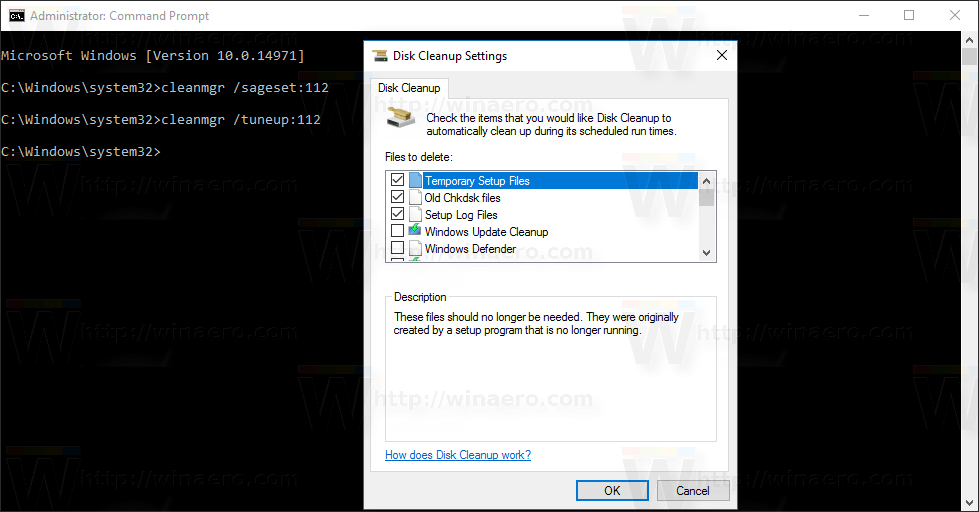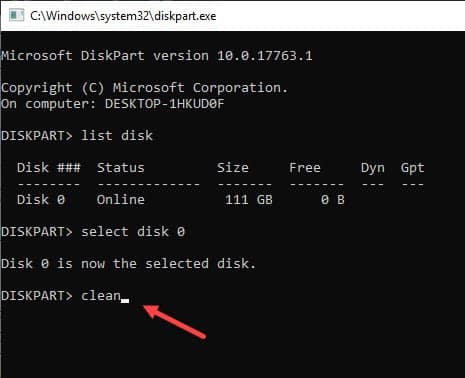

Once you complete the steps, the tool will connect to Windows Update online to download and replace damaged files (as necessary). Thankfully, we have a GUI tool to do that: gtkorphan, a graphical frontend for deborphan.Source: Windows Central (Image credit: Source: Windows Central) You’ll have to find all the orphaned packages first and then remove them. And hence you’ll have to manually delete it. The command ‘apt autoremove’ might not remove the orphaned package in this case. But imagine the case where you had manually installed mylib before installing myprogram. Now, the command listed in point 1 removes such orphaned packages. Thus mylib, in this case, becomes an orphaned package. When you delete ‘myprogram’, mylib might still remain in the system. This lib will be usually installed automatically with ‘myprogram’. But this package has a dependency on the library ‘mylib’. Suppose you installed a package ‘myprogram’. I am not a fan of this method and I advise you to avoid it.įirst, let’s see what is an orphaned package in Ubuntu. This step is best avoided if you are a beginner. This way, you will have at least one/two other kernels to boot with, if for whatever reason the latest kernel you are unable to boot with. My recommendation is to keep at least two or preferably three kernels including the latest.

Note: Replace VERSION with the version of the kernel you want to remove. It will prompt you with a list of packages that will be removed, so you can double check the list before continuing. I’m using shell expansion for the version numbers to save typing. Removing the old kernels is the same as removing any other package. List all installed Linux kernels first: sudo dpkg -list 'linux-image*' So, if you manually installed a Linux kernel, perhaps you can manually uninstall it as well. But removing old, unused Linux kernels will still save you plenty of space. But it won’t work if you manually installed the kernel in Ubuntu. The command discussed in point 1 removes the old Linux kernel. Remove old Linux kernels that were manually installed The script removed the older Snap packages and freed over half of the 5 GB space used by Snap. Give it execute permission, run the shell script with sudo and see the magic. Snap remove "$snapname" -revision="$revision" What you have to do here is to create a new shell script and use the following lines in your script: #!/bin/bash du -h /var/lib/snapd/snapsĪlan Pope, part of Snapcraft team at Canonical, has created a small script that you can use and run to clean all the older versions of your snap apps. On top of that, Snap stores at least two older versions of the application (in case, you want to go back to the older version). You probably already know that Snap packages are bigger in size. Remove older versions of Snap applications When you are almost out of space, this 500 Mb can make a lot of difference.ĥ. You can see the size of this cache with the du command below: sudo du -sh /var/cache/aptĪs you can see, I have over 500 Mb of cache storage. Over time, this cache can grow quite large and hold a lot of packages you don’t need. The APT package management system keeps a cache of DEB packages in /var/cache/apt/archives.
COMMAND CLEANUP SOFTWARE
Ubuntu uses APT (Advanced Package Tool) for installing, removing and managing software on the system, and in doing so it keeps a cache of previously downloaded and installed packages even after they’ve been uninstalled. You can remove a program in Ubuntu from the software centre or use the command below with the particular app names: sudo apt-get remove package-name1 package-name2 3. Clean up APT cache in Ubuntu If you need space more getting rid of the unused or lesser used applications is always a good idea. Maybe you installed them on the back of an awesome review, out of nosiness, or to handle a particular task. You can find installed apps in Software CenterĬhances are that you have a number of apps installed that you seldom use.
COMMAND CLEANUP FREE
You should see the disk space used and the free space remaining here: It’s always a good idea to check the free disk space in Linux first.
COMMAND CLEANUP HOW TO
I’ll also share some advanced tricks so that you’ll have choices.īut before that, let’s see how to find the free space remaining on Ubuntu. In this article, I’ll show you some of the easiest tricks to clean up your Ubuntu system and get more space. But if your hard disk has limited space, like I have a 128 GB SSD laptop, freeing up disk space becomes a necessity. If you have like a TB of storage capacity, you might not bother to clean up Ubuntu to make some disk space. Over time, any operating system can become cluttered as programs are added and removed. Brief: Running out of space on your Linux system? Here are several ways you can clean up your system to free up space on Ubuntu and other Ubuntu based Linux distributions.


 0 kommentar(er)
0 kommentar(er)
